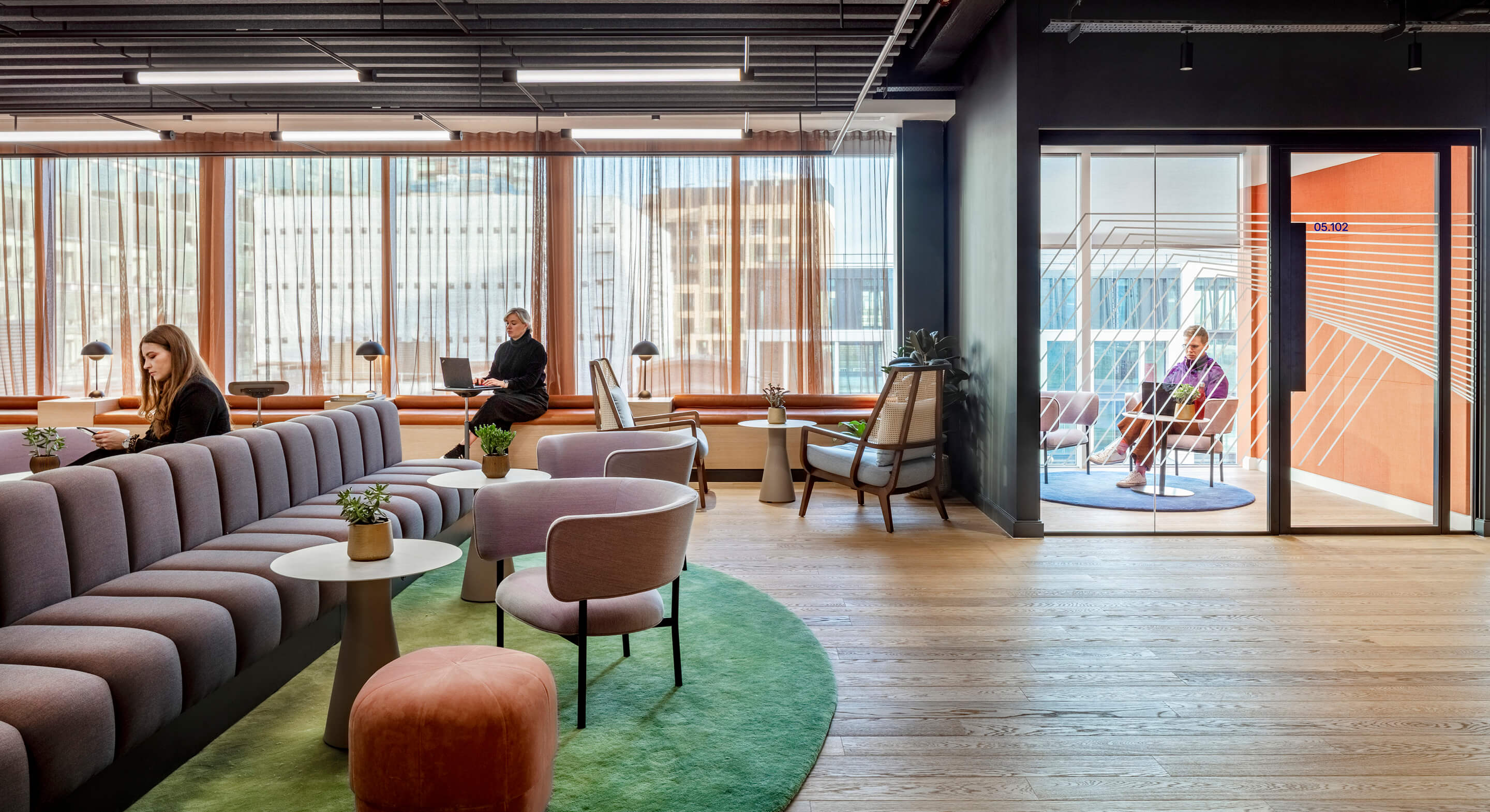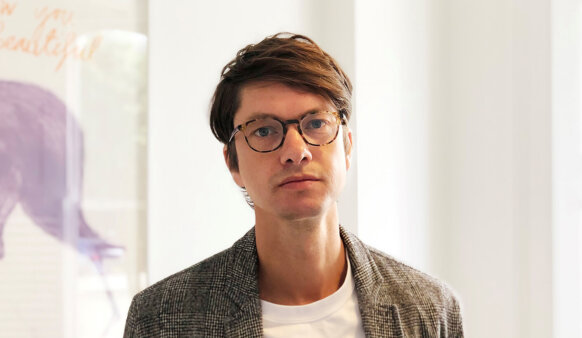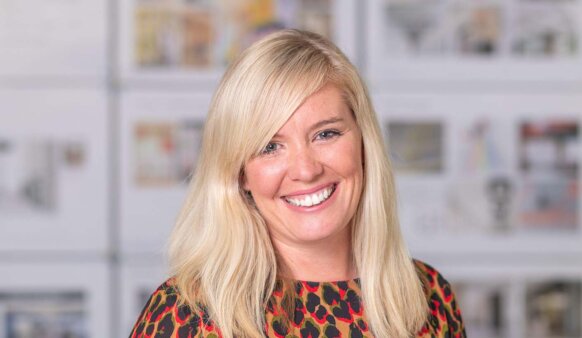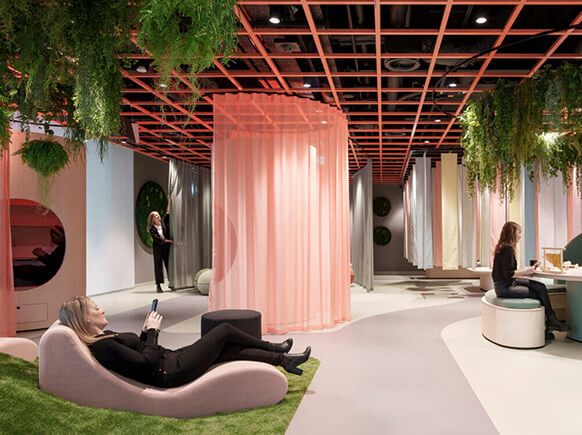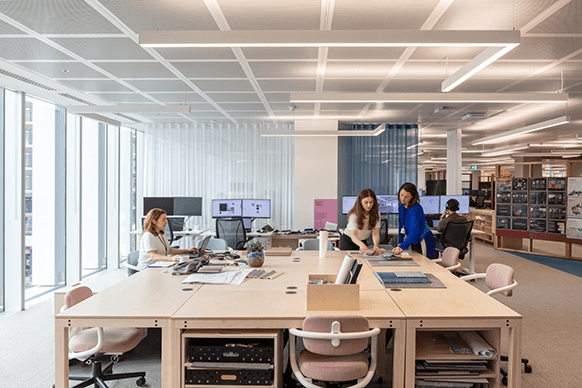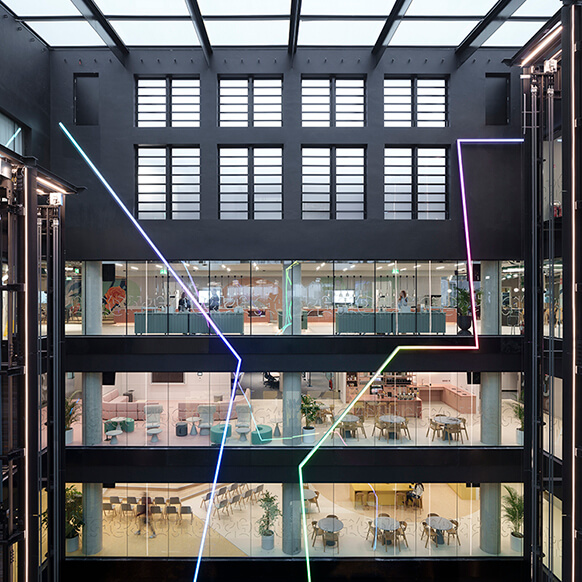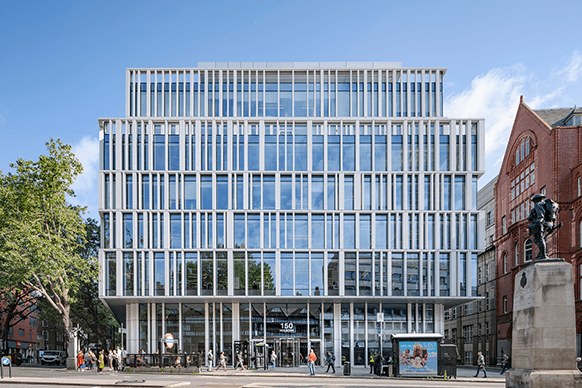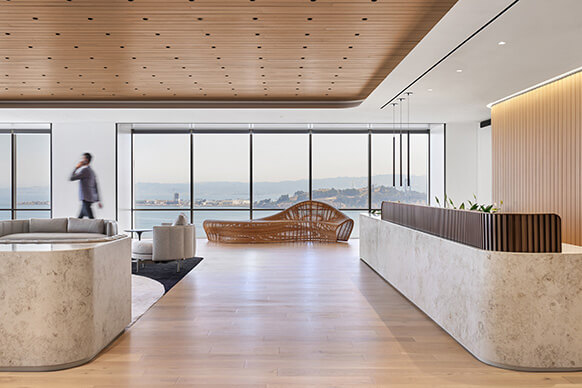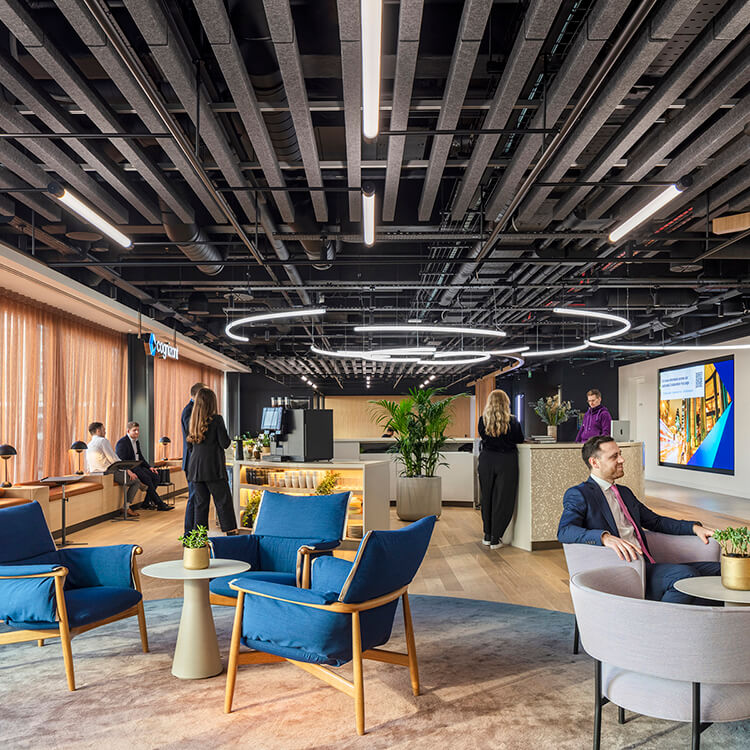
280 Bishopsgate
Cognizant, a global professional services company, has grown organically over many years, and spanned four buildings across London. 280 Bishopsgate’s unique location to the east of the city was selected as the place to consolidate all of the teams under one roof, into a new headquarters.
The project is a physical representation of the company’s new operating model, ‘ONE Cognizant’, a collaborative employee and client-based hub that enables teams, relationships, and collaboration to thrive. This supports the attraction and retention of talent, and demonstrates what the organisation has to offer to teams and their clients.
We used qualitative and quantitative methods to gain a comprehensive understanding of Cognizant’s current needs and future vision. We discovered two primary in-person functions were required: team and client experiences. The headquarters would serve as a space for project launches, bid preparations, celebrations, recruitment, collaboration, and client meetings. Ultimately, this was an opportunity to redefine workplace environments for the client, move away from conventional concepts, and set a benchmark for innovation.
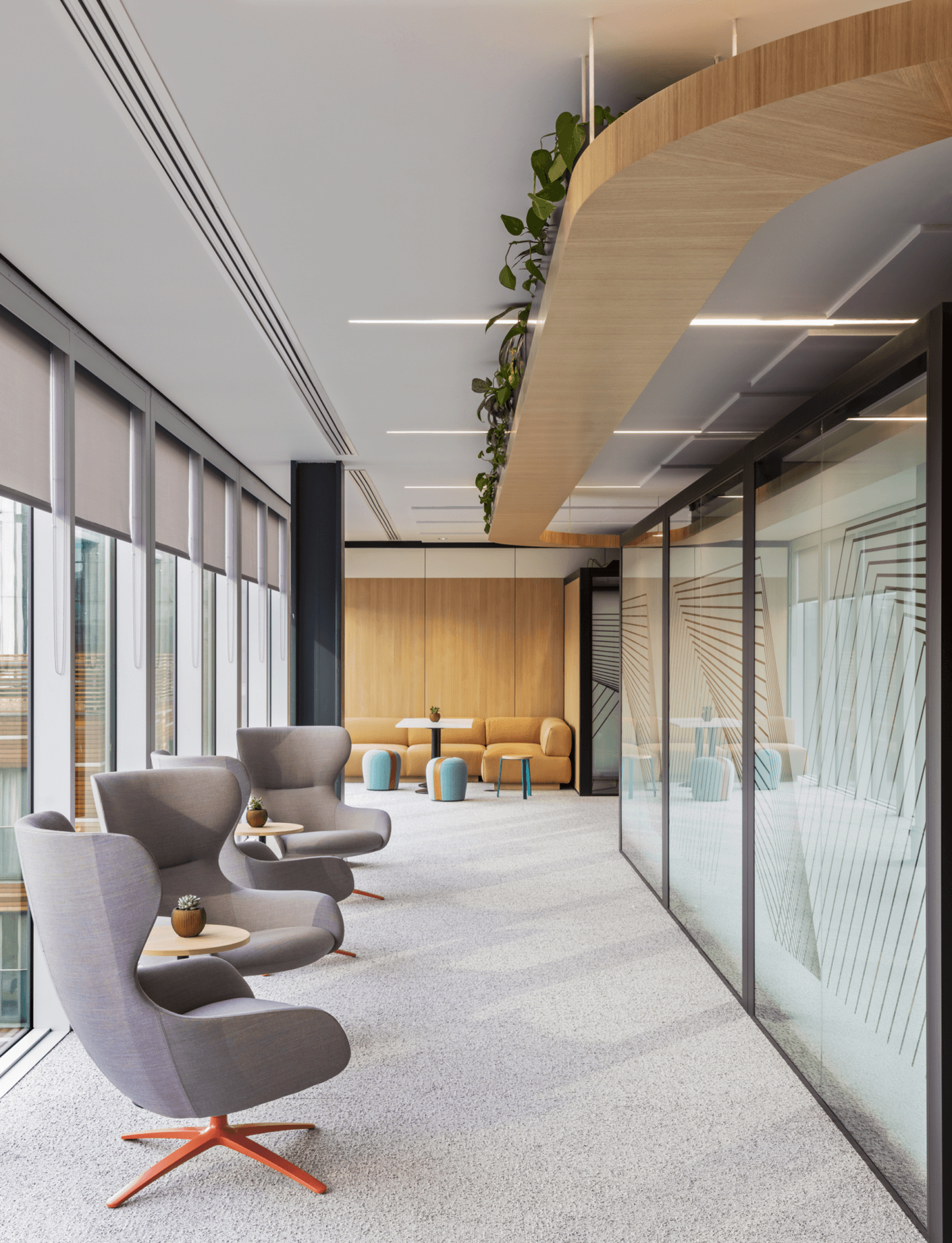
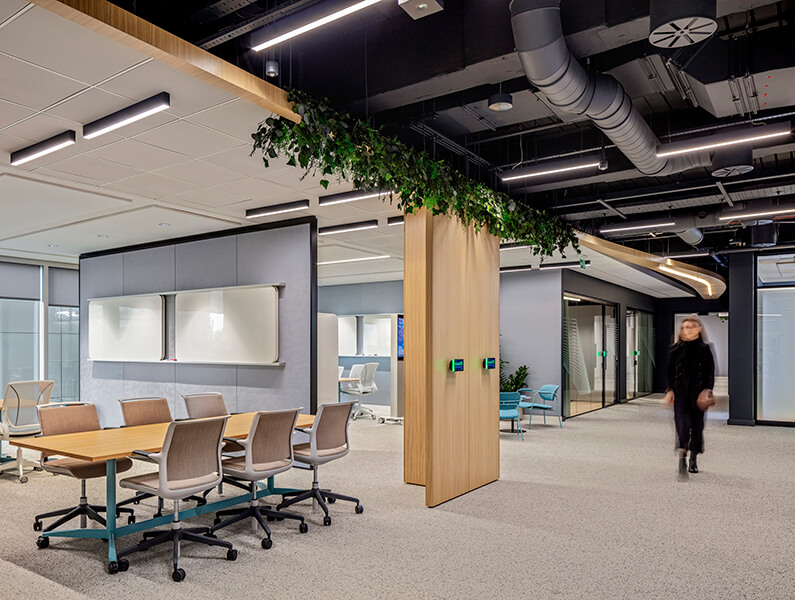
280 Bishopsgate needed to simultaneously showcase a Fortune 500 company, preserve the building’s architectural character, and express the variety of brand messages and stories bridging their diverse work portfolio.
Our design has created engaging client experiences, stronger business relationships, and is a ‘magnet office’ to attract new talent and draw existing team members back to the office. We delivered a flexible, future-proof, and sustainable scheme that has reduced cost and carbon impact, and has consolidated real estate to reduce operational carbon footprint.
Cognizant’s new way of working required a new typology of space. We introduced Co-Labs—unallocated and re-configurable modules customised to best support a team’s activity—and designed mobile whiteboards, show-and-tell elements and digital displays throughout the office space to enable the personalisation and showcasing of ideas.
— Melanie Christopher, Chief Growth Officer, GGM
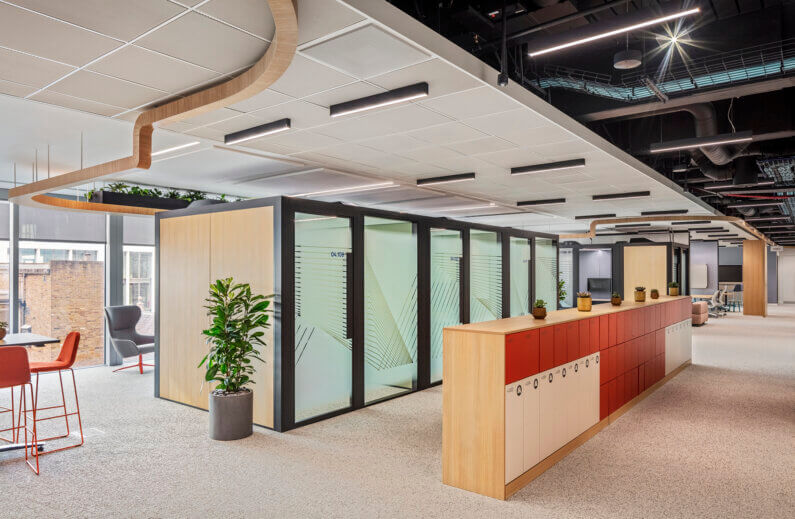
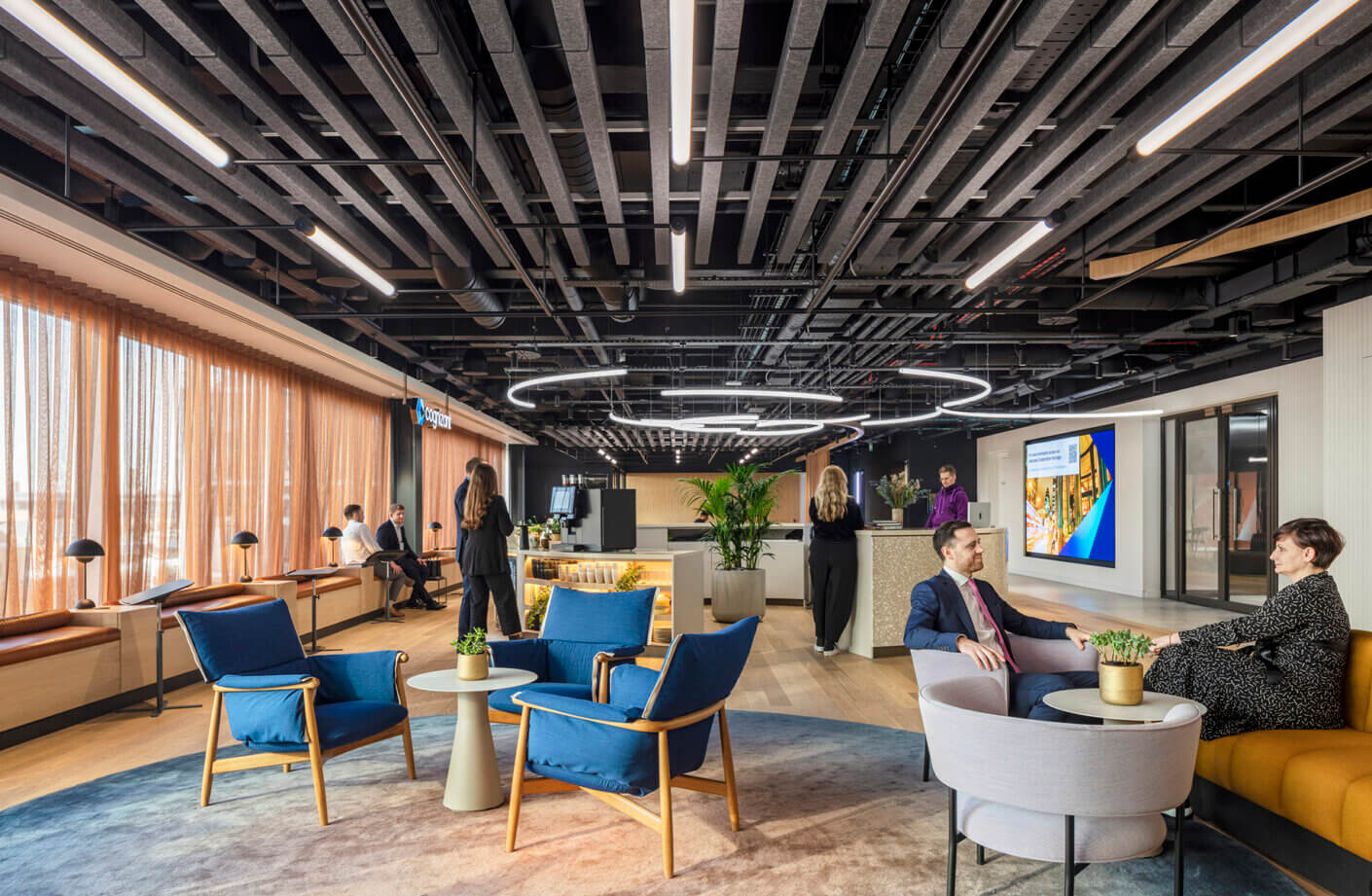
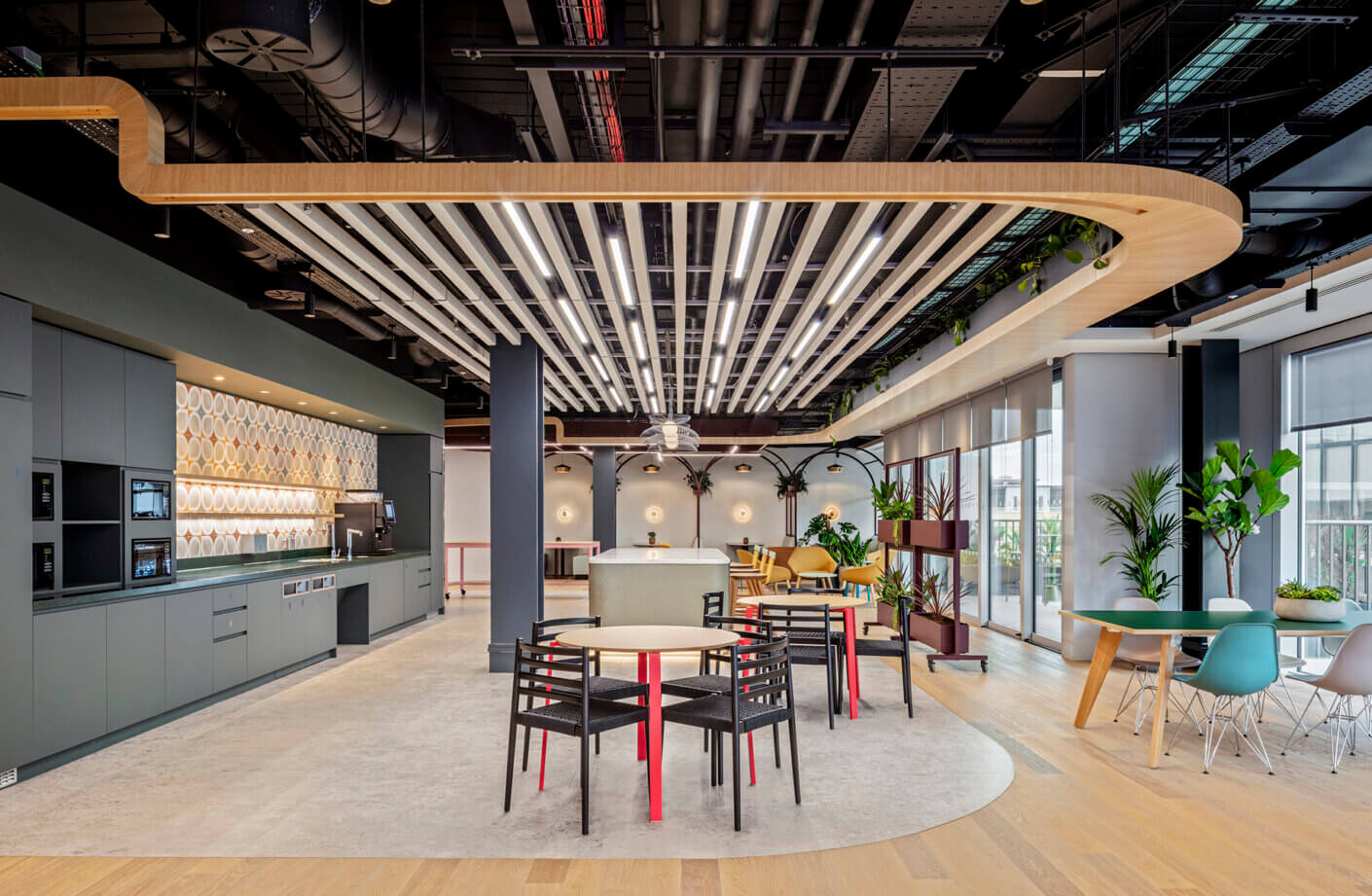
Consolidating 1,400 desks from multiple offices to approximately 350 work points in one location required new rules on how the office was to be used.
This transformation focused on creating a collaborative workplace that is inclusive of all hybrid working patterns. The design aesthetic delivers a warm, welcoming and intuitive place.
To ensure a future-proof space, the project followed an adaptable and flexible construction approach. This included reducing the number of built rooms, incorporating a ceiling system with multiple partition arrangements, and introducing a connecting visual thread, ultimately ensuring the space meets evolving business needs. This approach is essential in moving the construction industry towards a sustainable, circular economy model.
The base build was delivered to a complex and bespoke Cat A level. Our design and construction teams worked hard to ensure the majority of the existing MEP and ceiling systems could be dovetailed into the proposed scheme to avoid wasting new materials.
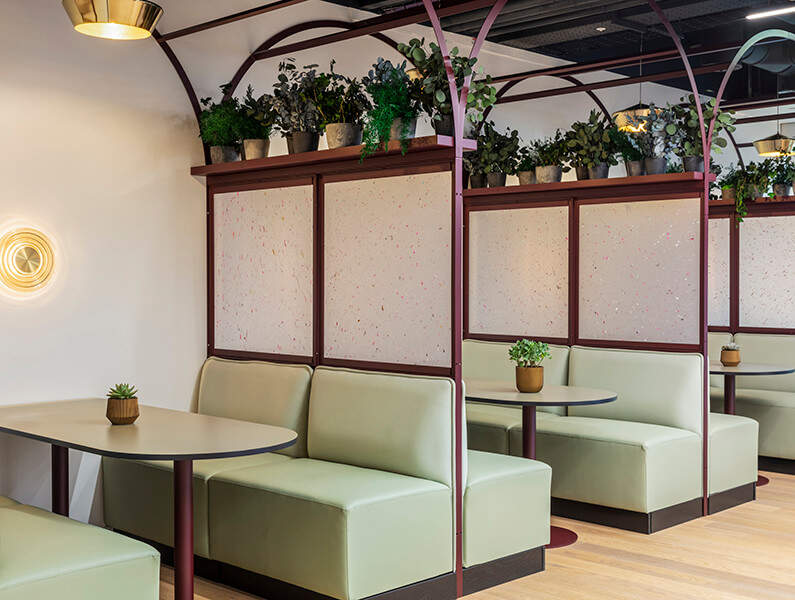
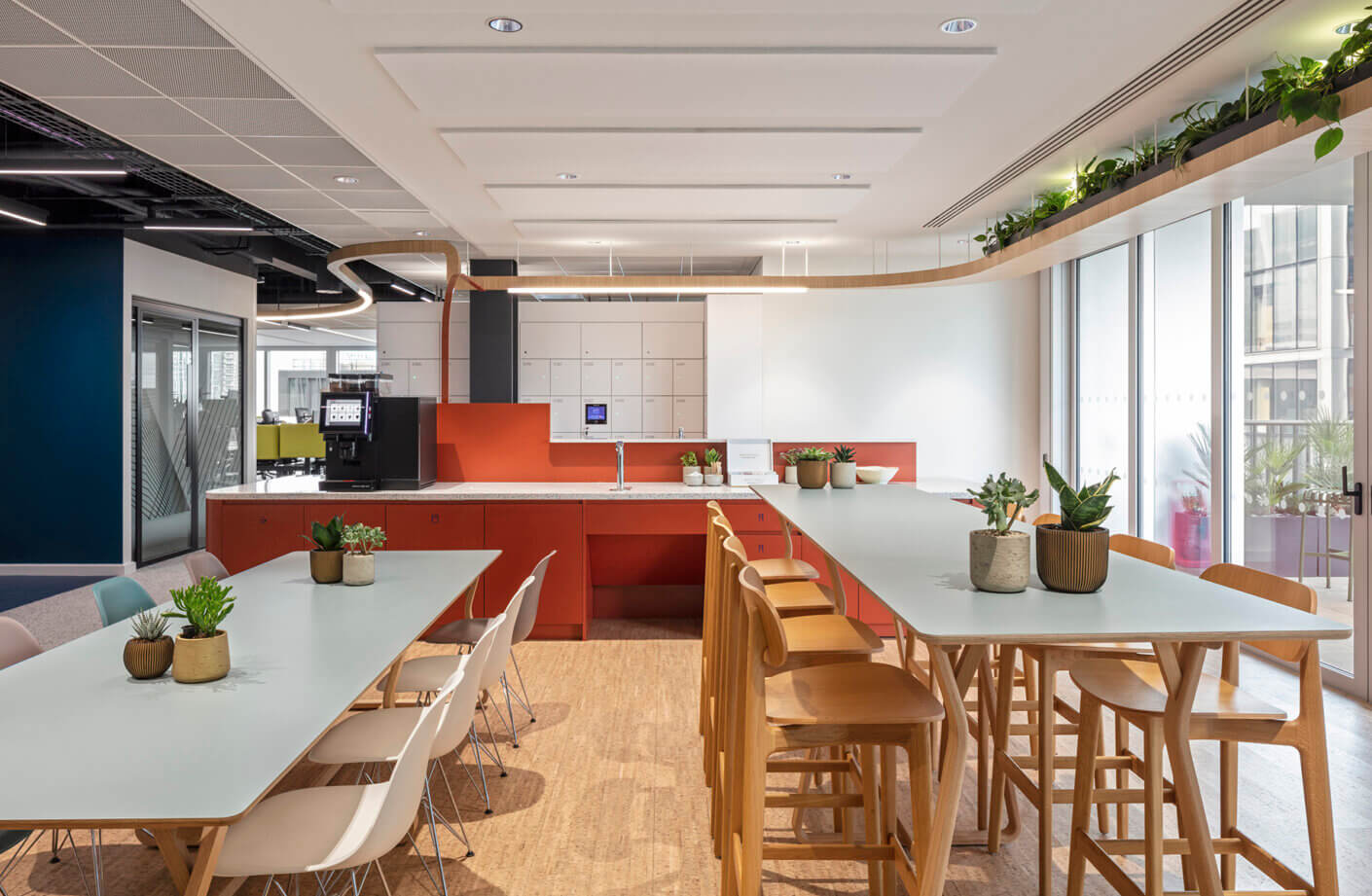
We strove for sustainability excellence throughout the project, and have already secured both BREEAM Outstanding and Well Platinum accreditation. We used the Perkins&Will NetZeroNow database to scrutinise all finishes for healthy materials including low VOC, PVC-free, and recyclable materials, promoting the creation of a safe and environmentally conscious atmosphere.
A comprehensive life cycle analysis informed targeted reductions in high embodied carbon areas, and demountable systems for all partitioning and screens ensure future end-of-life considerations. The project has achieved a remarkable 25% furniture reuse and follows circular design principles.
- Reusing existing furniture and upcycling sit-stand desks.
- Utilising Perkins&Will’s in-house toolkit for the design of neurodiverse spaces.
- A colour scheme with biophilic strategies that responds to variety, further supporting design for inclusivity.
- A Social Value Plan, developed through analysis of community needs, facilitated engagement and connection to local groups and organisations.
- Volunteering at the Whitechapel Mission Homeless Shelter, initiating an ongoing partnership across multiple sites.
- Donating gardening equipment to Praxis, benefiting their community bonding activities with Stepney City Farm.
